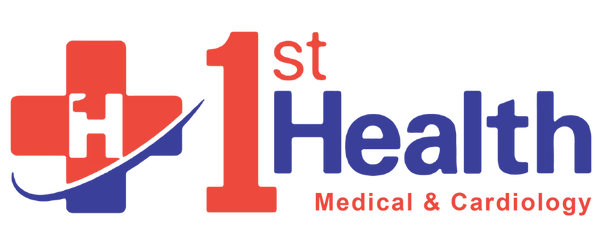Hypertension Management: Taking Control of Your Blood Pressure

Hypertension Management
High blood pressure, also known as hypertension, is a serious medical condition that affects millions of people worldwide. It’s a leading risk factor for heart disease, stroke, kidney failure, and other health complications. The good news is that hypertension can be effectively controlled (ie. hypertension management) through a combination of lifestyle modifications and medications, significantly reducing your risk of developing these life-threatening conditions.
This comprehensive guide explores everything you need to know about hypertension management. We’ll delve into the importance of early detection, discuss various lifestyle changes that can lower your blood pressure, and explore the different medication options available. With a proactive approach and guidance from your healthcare provider, you can effectively manage your hypertension and live a healthier life.
Understanding Hypertension
Before diving into management strategies, let’s establish a clear understanding of hypertension. Blood pressure is the force exerted by circulating blood against the walls of your arteries. Each time your heart beats, it pumps blood throughout your body. Systolic pressure refers to the pressure when your heart contracts and pushes blood out. Diastolic pressure represents the pressure between heartbeats when your heart relaxes and refills with blood. Blood pressure is typically recorded in millimeters of mercury (mmHg) with two numbers separated by a slash. For example, 120/80 mmHg is considered normal blood pressure.
Hypertension is diagnosed when your blood pressure readings consistently fall outside the normal range. According to the American Heart Association (AHA), hypertension is categorized as follows:
- Normal: Less than 120/80 mmHg
- Elevated: Systolic pressure between 120-129 mmHg and diastolic pressure less than 80 mmHg
- Stage 1 Hypertension: Systolic pressure between 130-139 mmHg or diastolic pressure between 80-89 mmHg
- Stage 2 Hypertension: Systolic pressure 140 mmHg or higher or diastolic pressure 90 mmHg or higher
Hypertension often develops gradually and may not cause any noticeable symptoms in the early stages. This is why regular blood pressure monitoring is crucial for early detection and timely intervention.
Importance of Early Detection and Management
Left untreated, hypertension can silently damage your blood vessels and organs, increasing your risk of developing severe health complications. Here’s why early detection and management of hypertension are critical:
- Reduces Risk of Heart Disease: High blood pressure is a major risk factor for heart attack, stroke, and congestive heart failure. By managing your blood pressure, you significantly decrease the strain on your heart and blood vessels, lowering your risk of these life-threatening conditions.
- Protects Your Kidneys: Over time, uncontrolled hypertension can damage the delicate filtering system in your kidneys, leading to kidney disease and potentially even kidney failure.
- Improves Overall Health: Effectively managing your blood pressure can improve your overall health and well-being. It can boost your energy levels, reduce the risk of cognitive decline, and enhance your quality of life.
Early detection allows for timely intervention, preventing the development of these complications and improving your long-term health outcomes.
Lifestyle Modifications for Hypertension Management
Lifestyle changes are the cornerstone of hypertension management. By adopting healthy habits, you can significantly lower your blood pressure and reduce your reliance on medication. Here are some key lifestyle modifications that can make a big difference:
- Maintain a Healthy Weight: Excess weight puts extra strain on your heart and blood vessels. Losing even a modest amount of weight can significantly improve your blood pressure control.
- Eat a Healthy Diet: Embrace a balanced diet rich in fruits, vegetables, whole grains, and lean protein. Limit saturated and unhealthy fats, sodium (salt), and added sugars. The Dietary Approaches to Stop Hypertension (DASH) diet is a proven strategy for lowering blood pressure.
- Reduce Sodium Intake: Excessive sodium intake can contribute to high blood pressure. Aim to limit your daily sodium intake to less than 2,300 milligrams (mg), ideally striving for 1,500 mg or less if you have already established hypertension.
- Regular Exercise: Aim for at least 150 minutes of moderate-intensity aerobic activity or 75 minutes of vigorous-intensity aerobic activity per week. Regular physical activity strengthens your heart, improves blood flow, and helps you maintain a healthy weight, all of which contribute to lower blood pressure.
- Limit Alcohol Consumption: Excessive alcohol consumption can raise your blood pressure. Moderate alcohol intake is generally defined as one drink per day for women and two drinks per day for men. However, it’s best to discuss this with your doctor to determine the appropriate level for you.
- Manage Stress: Chronic stress can contribute to high blood pressure. Techniques like meditation, deep breathing exercises, and yoga can help you manage stress effectively.
- Quit Smoking: Smoking damages blood vessels and increases your risk of heart disease and stroke.
Take Action Now
Don’t wait to take control of your hypertension. If you have trouble managing your high blood pressure, contact 1st Health Medical & Cardiology now.
Schedule an appointment today.
